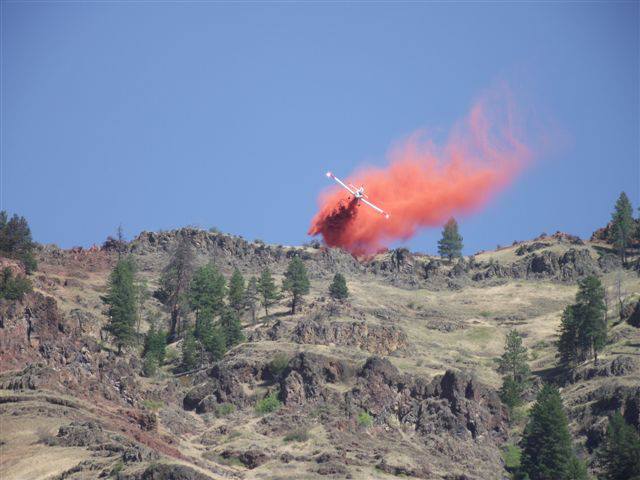
OLYMPIA, WA – A seven-year effort by Rep. Mary Dye (R-Pomeroy) seeking to shore up the front line and have the state reimburse local fire districts for their costs of using helicopters and airplanes to attack a fire when it initially breaks out culminated this week in legislation heading to Governor Jay Inslee.
Last Monday, the Senate unanimously approved Dye’s “Aviation Assurance Funding” measure, House Bill 1498. It had previously passed the state House of Representatives unanimously on March 8th. Because the bill was amended in the Senate, it was returned to the House for concurrence. The House unanimously concurred with the amendment on Friday. The bill is now heading to the governor for his signature.
Dye originally introduced the bill in 2016, her second year in office, at the urging of Asotin County Fire District 1 Chief Noel Hardin, and subsequently every two years since.
From House Republicans:
“Minutes count when a fire breaks out. If local fire districts can immediately begin using air support to attack a fire, it could be extinguished much quicker, prevent the destruction of timber and range land, protect our air quality, and save the state millions of dollars,” said Dye, ranking Republican on the House Environment and Energy Committee.
“Waiting for the State Fire Marshall to authorize aerial suppression can take hours – precious time in which a little fire can grow into a massive inferno, destroying everything in its path. But calling in local aviation suppression when the fire is small can quickly break the budgets of local fire districts. The cost of contracted helicopters is as much as $2,500 per hour,” noted Dye. “This legislation would allow the state to reimburse our local fire departments, giving them the ability to call out local aerial suppression on initial attack without breaking the bank.”
After years of the bill stalling in the House Appropriations Committee, Dye teamed up this year with Rep. Tom Dent, R-Moses Lake, ranking member on the House Agriculture and Natural Resources Committee, a pilot, and a senior member of the State Legislative Wildfire Caucus. Together, they negotiated with state Public Lands Commissioner Hilary Franz to craft the proposal into a measure that received the support of fellow lawmakers and the Department of Natural Resources (DNR).
Hardin was excited about passage of the bill and issued the following written statement:
“Seven years ago, I placed a call to Rep. Mary Dye asking for help from the state regarding the use of aviation on wildland fires. Though state mobilization is an incredible resource for fire districts and fire departments, there was a hefty gap in time to get air resources on a fire quickly. In southeastern Washington, we have light flashy fuels, and it doesn’t take long to end up with a huge fire running through bluffs and hard-to-access areas. The goal is always to get the fire out as fast and safely as possible, and the key has been from the air.
“There is a gap in time before state mobilization authorization is granted, and this fund is going to close that gap! Air resources are expensive and can eat into a small fire district budget. Being able to call for those resources right out of the gate has a tremendous amount of potential to keep fires small and possibly keep the fire from going to a full state mobilization fire. We will still call for mobilization like we always have, but this fund will help cover us until we get the mobilization approval. We may only need a few hours of flight time from a helicopter to squash a fire. That is much cheaper than a full state mobilization with air, ground and management resources.
“House Bill 1498 is truly a win-win for the state and fire districts. Ultimately, with the passing of 1498, we will now be provided with funding to help mitigate and keep fires small and the need for mobilization. We will also see less damage to private, state and federal lands we protect, and most importantly, it will be safer for firefighters and the citizens we are charged to protect.
“We are so thankful that Rep. Dye was diligent and unwilling to give up on this bill. She saw our vision of fire suppression and really the potential of saving the state millions of dollars. We hope that we can continue to work as a team with all stakeholders and make this a successful program now and long into the future.”
Dye responded to Hardin’s statement, adding, “One of the greatest satisfactions of serving as a state representative is being able to help people back home. It is truly commonsense legislation that will save millions of dollars in wildfire suppression costs, protect valuable forests and rangelands, prevent destruction of property and lives, reduce carbon emissions, and keep our local fire districts whole,” said Dye. “I’m hopeful the governor also recognizes these benefits and signs the bill into law.”

